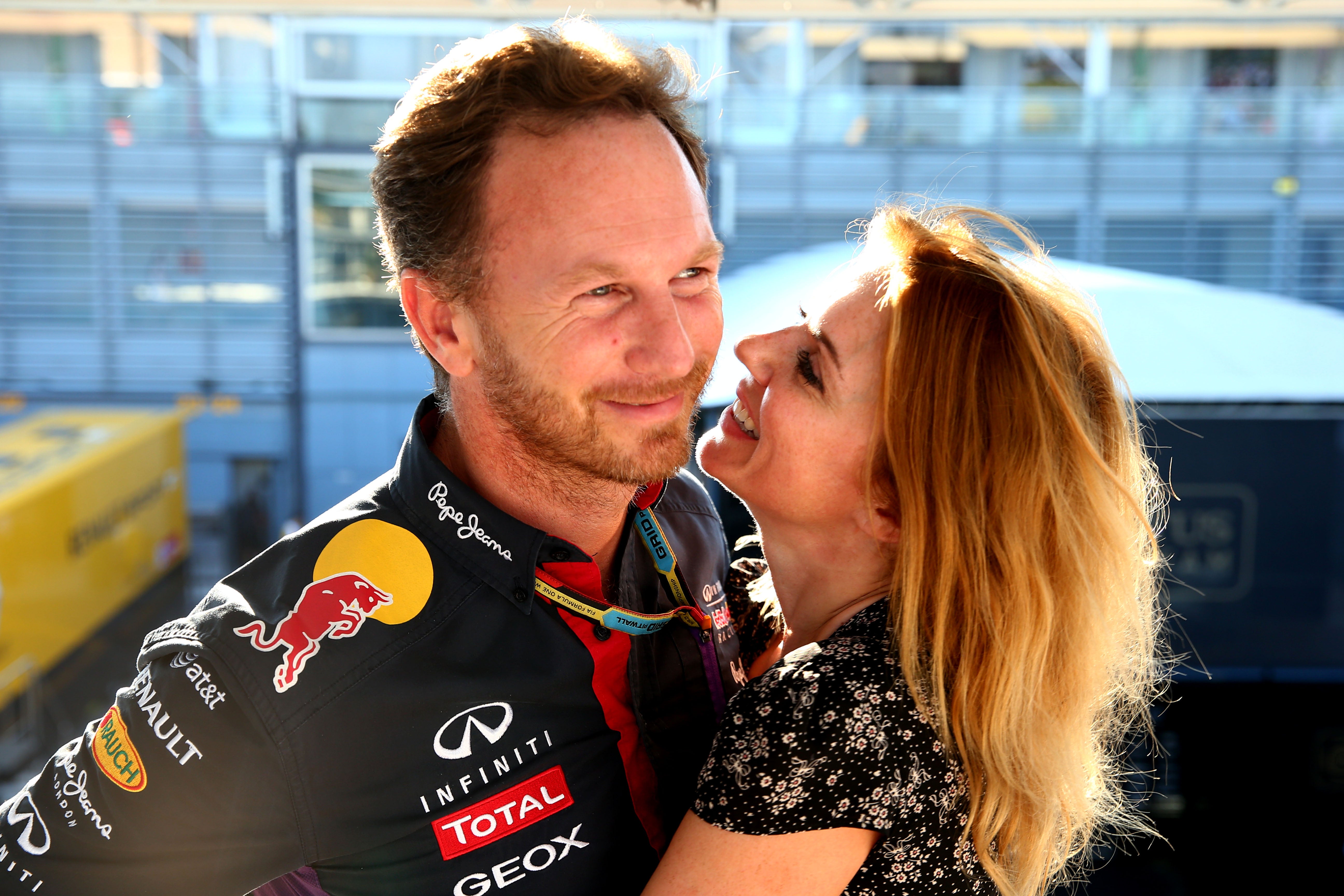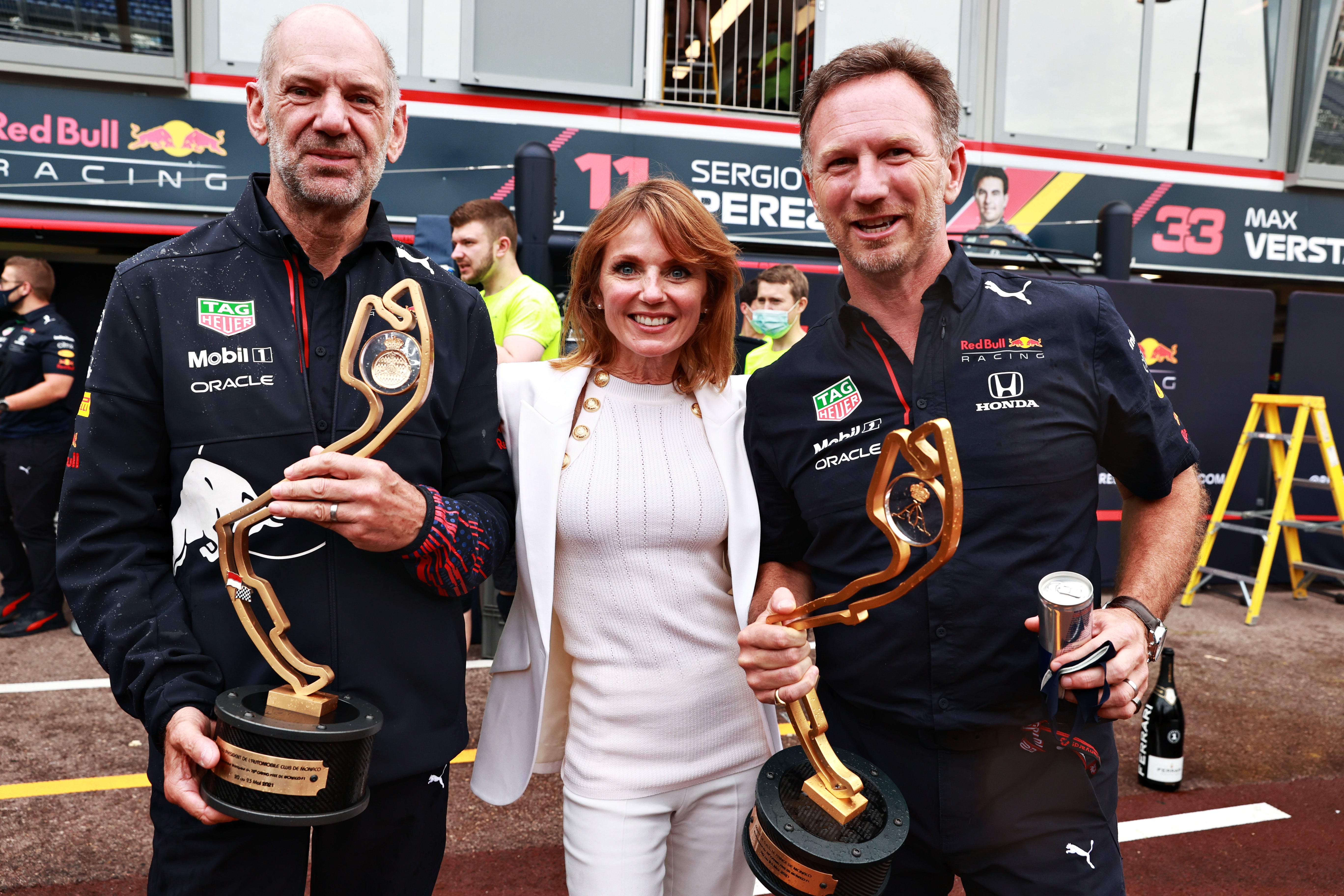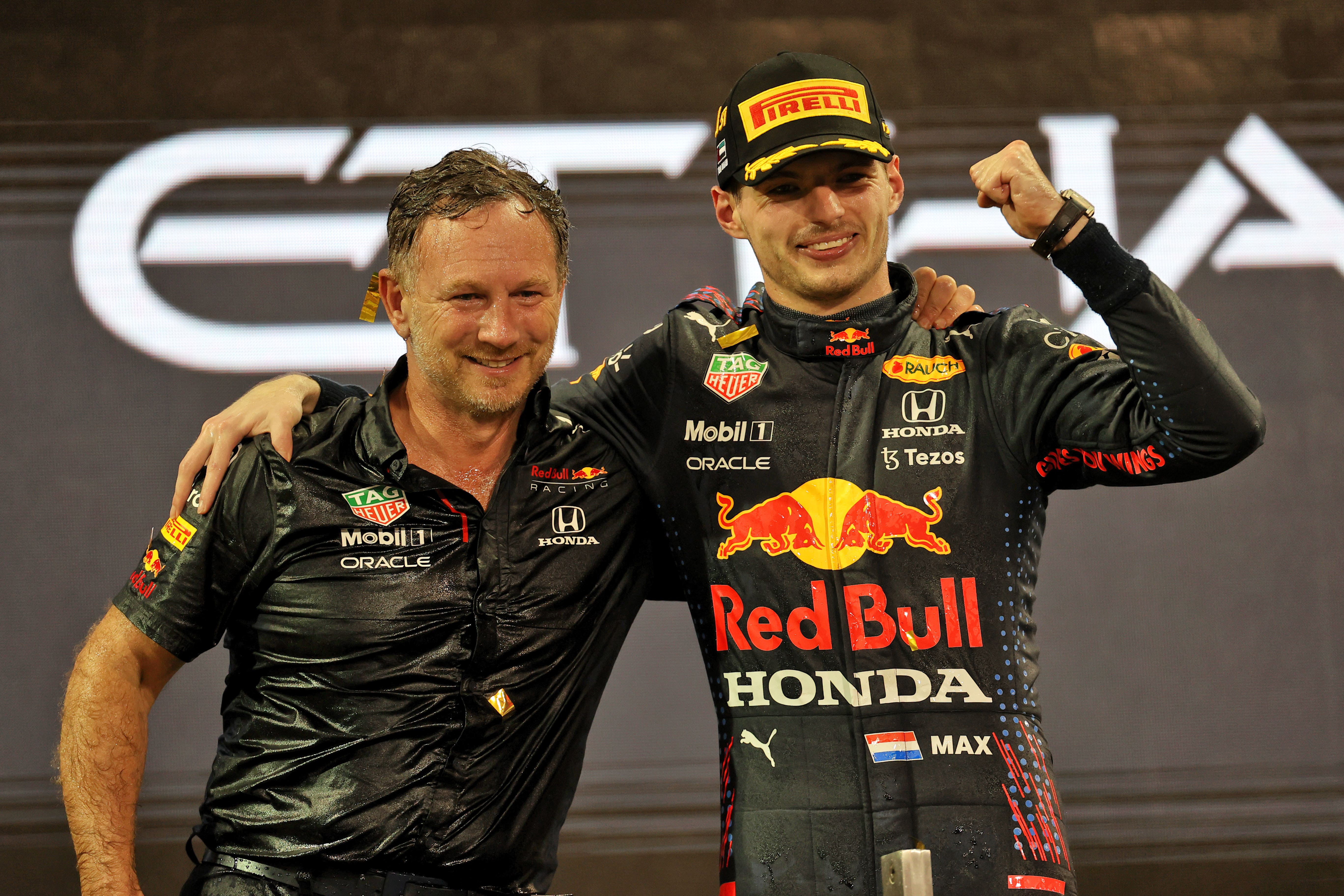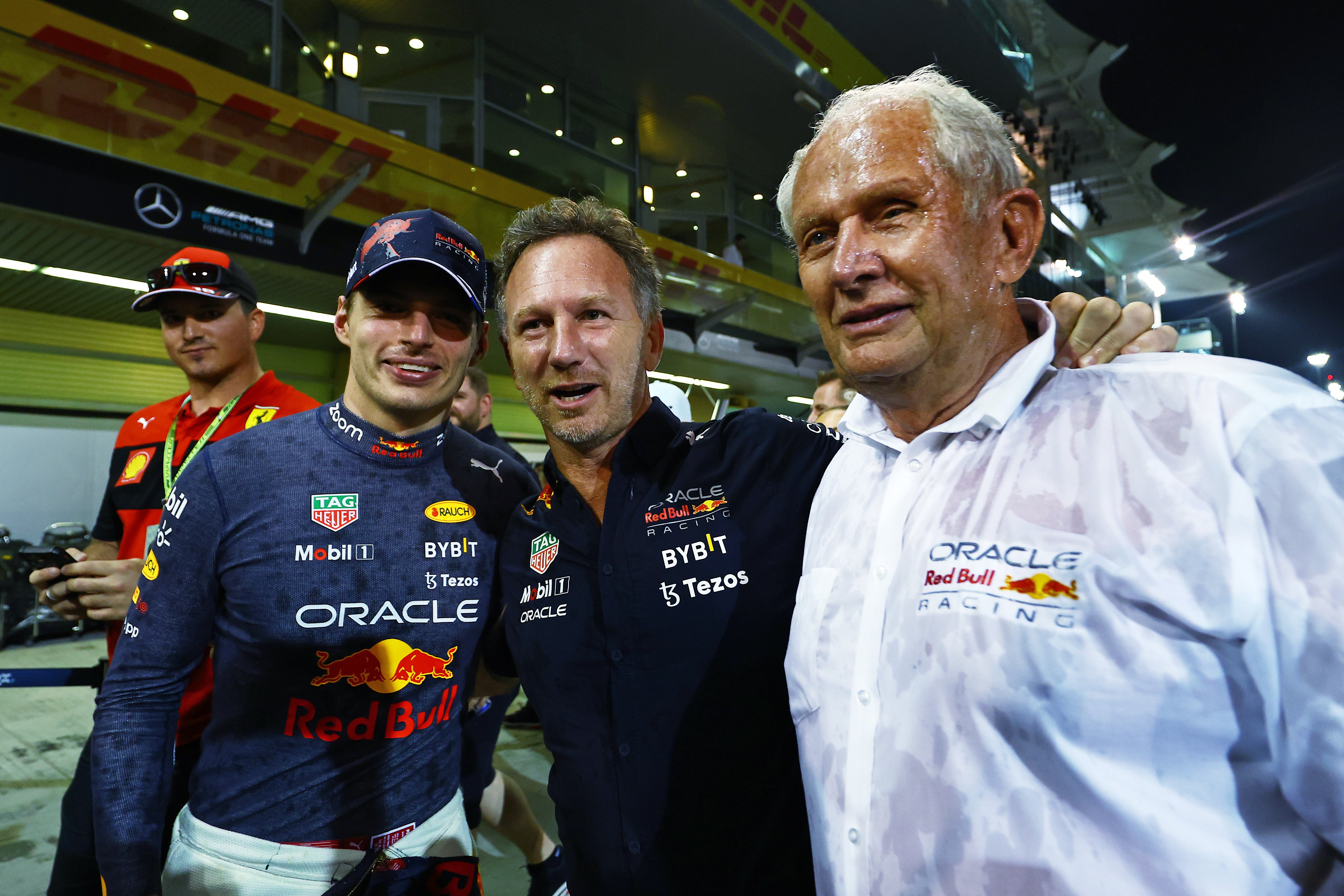Christian Horner: The Red Bull F1 Drive to Survive star married to Spice Girl Geri Halliwell
The Red Bull F1 boss – whose wife is Spice Girl pop star Geri Halliwell – faces allegations from a female colleague and is subject to an investigation by the team’s parent company
Christian Horner’s influence on Formula One – from the 31-year-old hotshot team principal in 2005 to unmissable mainstay of the paddock nearly 20 years on – is unquestionable. The Red Bull boss was tasked with a monumental mission when he was put in charge of the energy drink giant’s peculiar foray into the pinnacle of world motorsport in the mid-2000s. The castle he has built since has been stratospherically impressive. Case in point was last year’s near-perfect season, winning 21 out of 22 races. It has all been, perhaps, even beyond his own lofty aspirations.
But it could all come crumbling down. As details emerged on Monday, Horner is now subject to an investigation by Red Bull’s parent company, Red Bull GmbH, after a complaint of “inappropriate behaviour” was made by a female colleague. The Associated Press elaborates slightly further, claiming it is about the 50-year-old’s aggressive management style. Horner strongly denies the allegations and there will be a hearing on Friday.
Red Bull GmbH has handed over the matter to an “external specialist barrister” to conduct the investigation, thus illustrating the seriousness of the matter and how it is being dealt with by Red Bull GmbH chief executive Oliver Mintzlaff. With less than a month until the new F1 season, it represents a vital moment in the team’s 19-year history. And depending on the outcome, the ramifications for not just Red Bull but for the whole sport could be seismic.
Horner, who married Spice Girl pop star Geri Halliwell in 2015 and with whom he has one son, can regularly be seen craving the limelight but will not enjoy this latest front-page episode. His ascendancy to one of the biggest figures in F1 can be traced back to the initial quelling of his ambitions to race at the very top. An early and bold change of direction led him to where he is today.
A promising karter in his teenage years, Horner raced for two years in the late 1990s for Arden in Formula 3000, then the final stage before a potential F1 seat. Yet one moment in a pre-season test, when unable to match Juan Pablo Montoya’s commitment into a high-speed corner, told him all he needed to know.
Montoya would go on to race in F1, Horner would not. Abruptly, he retired from racing at the age of 25 and opted to cross over to the management side of the Arden team.
It was there he built up his early reputation, winning junior titles. But despite his relative immaturity in a motorsport management ecosystem then dominated by elder statesmen of the sport – Bernie Ecclestone, Ron Dennis, Ross Brawn etc. – his sights were still firmly set on Formula One. Though talks with Eddie Jordan about a takeover fell through, at the age of 31 Horner became the youngest team principal on the grid when he was trusted with overseeing Red Bull’s entry into the sport, when the company’s co-founder Dietrich Mateschitz decided to venture into motorsport by purchasing Jaguar.
Horner made moves quickly. Having already forged a relationship with Helmut Marko – more on him later – he acquired the services of star designer Adrian Newey in his first season in charge in late 2005. It would prove a masterstroke.


Breaking the monopoly of Ferrari, McLaren and Renault, Red Bull stormed to four straight drivers’ titles from 2010-2013, with Sebastian Vettel in the cockpit. Horner was quickly making a name for himself with results on the track and influence off the track, gaining the trust and support of F1 supremo Ecclestone. So much so, in fact, that Horner served as best man at Ecclestone’s wedding to third wife Fabaina in 2012, and then vice-versa when Horner married Halliwell three years later. Their straight-talking similarities seemed to trump the 43-year age gap.
Season-by-season, Horner’s visibility became synonymous with the sport. Even in this current period of record-breaking schedules, he does not miss a race. Always keen to have his say, he rarely turns down an interview with either the print or broadcast press. One such moment, in Singapore in 2014, saw an exchange with Martin Brundle on the grid. Eulogising about F1’s original night race circuit, Horner quipped: “It’s a shame you’re too old to have driven here really.” Brundle, forever sharp-witted, quickly jibed back: “Shame you weren’t fast enough to get into Formula One!”
It was a sign of things to come. Netflix’s entrance into the sport with Drive to Survive in 2019 gave Horner the reach and standing for all his engrossing and incisive behind-closed-doors interactions to be aired to a whole new audience. Some love him, some loathe him.
Spats with team principals such as ex-Renault boss Cyril Abiteboul and current Mercedes CEO Toto Wolff have played out in front of the cameras. The melodrama of the 2021 season – between his protege Max Verstappen and Lewis Hamilton – saw Horner’s rivalry with Wolff almost match that of the drivers in the cockpit. The Red Bull boss is unashamedly a lover of the sport’s political plays and mind games.


But the current state of play – with Red Bull the dominant team, having won three drivers’ championships in a row after the best statistical season in the 74-year history of F1 – makes this latest news even more pertinent. There are stories of unease surfacing at Red Bull, despite their unprecedented success.
Mateschitz’s death in 2022 saw Horner lose his closest supporter within the wider Red Bull machine, in a period where he was under intense pressure as a result of Red Bull breaching the 2021 cost cap. In the 15 months since, rumblings of conflict between Horner and Marko – in charge of the Red Bull junior programme and, often to his detriment, extremely outspoken – have circulated. They disagreed on picking Nyck de Vries for Red Bull’s junior team last year, with Horner later vindicated when the Dutch driver was dropped after just 10 races.
Marko ran into hot water a few months later when he referred to Sergio Perez’s ethnicity when discussing his inconsistent form.“Let’s remember that he (Perez) is South American and so he is not as focused as Max Verstappen or Sebastian Vettel was,” Marko said, though Mexican driver Perez isn’t actually from South America. He later apologised. Now, there seems to be vague groups of support for both men, who are both tied down to long-term deals.
More significantly, however, there is speculation that Newey can depart the team should Horner leave, and vice-versa. The consequences of both men departing, having been at the helm of the Red Bull juggernaut for 19 years and counting, would be gigantic ahead of a new era of F1 regulations in 2026. Even if it isn’t written into any contracts, would one stay without the other? They have been something of an inseparable duo.
It all makes for uncomfortable reading for Horner, a matter of weeks after he received a CBE in the new year honours list for services to motorsport. Red Bull launch their 2024 car next Thursday at their base in Milton Keynes, in what is being billed as a celebration of 20 years in the sport as well as a nod to their 2023 campaign.
A week later, cars will be on track for testing, with the first race of the F1 season in Bahrain on 2 March. A lover of horses – he and Geri own numerous racehorses and can regularly be spotted at meets up and down the country – Horner will hope he has not already enjoyed his final furlong in the sport he adores and relishes in so much.



Bookmark popover
Removed from bookmarks